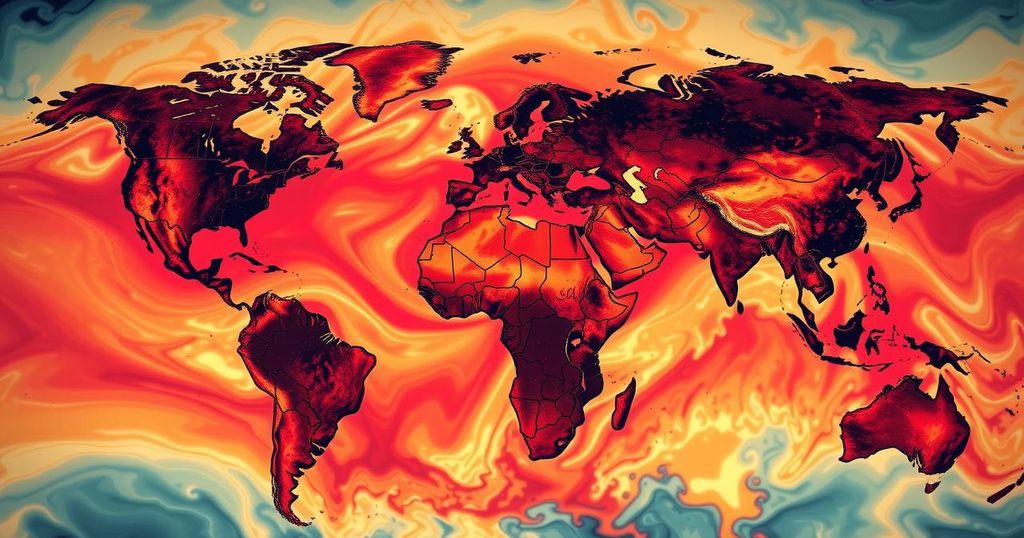Climate Change Results in 41 Extra Days of Dangerous Heat in 2024

In 2024, climate change caused an average of 41 additional days of dangerous heat, adversely affecting health and economy. Studies highlight significant income losses due to reduced productivity linked to heat stress, particularly in India. Urgent action against fossil fuel reliance is needed to prevent further severe weather events. This year has recorded unprecedented temperatures, exacerbating deaths and displacements worldwide.
According to a report, human activities linked to climate change resulted in an average increase of 41 days of dangerous heat in 2024, significantly impacting both human health and ecosystems. Previous studies have established that heat stress correlates with diminished workforce productivity, yielding adverse economic effects; for example, a Lancet study indicated that India could experience potential income losses of $141 billion in 2023 due to reduced labor capacity as a result of heat.
The analysis from World Weather Attribution and Climate Central stresses the urgent need for a swift transition away from fossil fuels to avert an unrelenting future of severe heatwaves, droughts, wildfires, storms, and floods. The report underscores that human-induced warming was responsible for the additional 41 days of dangerous heat experienced globally in 2024.
Dr. Friederike Otto, a leading climate scientist, reported that climate change has exacerbated 26 out of the 29 extreme weather events investigated by World Weather Attribution, resulting in significant fatalities and displacements. Record temperatures were observed within the first half of the year, maintaining a 13-month streak of unprecedented heat, with the hottest day historically recorded on July 22.
Moreover, the heat culminated in numerous severe weather events, including droughts, storms, and heavy rains causing widespread flooding. In total, 219 impactful weather events were identified. Although El Niño contributed to some extreme conditions, many analyses concluded that climate change had a more substantial impact on such events, especially highlighted by the persistent drought in the Amazon region.
The phenomenon of climate change, primarily driven by human activities such as the burning of fossil fuels and deforestation, has reached critical levels, leading to a noticeable increase in extreme weather patterns globally. This year, climate change’s impacts have manifested in significant health and economic challenges, especially seen through intense heat days that have increased by an average of 41 days in 2024. Prior studies have established a direct correlation between heat exposure and lost labor productivity, indicating that economies—especially those reliant on outdoor labor—face substantial risks. As the effects of climate change continue to intensify, scientists are calling for urgent actions to transition towards sustainable practices and reduce dependence on fossil fuels.
In summary, the repercussions of climate change are becoming increasingly evident, with 2024 witnessing an alarming average of 41 additional days of dangerous heat, drastically affecting health, productivity, and the economy. Studies suggest that without a rapid transition from fossil fuels, the world may face a future of relentless climatic extremes, including severe heatwaves and natural disasters. The time for action is imperative to mitigate these crisis points and safeguard public health and economic stability.
Original Source: www.businesstoday.in






